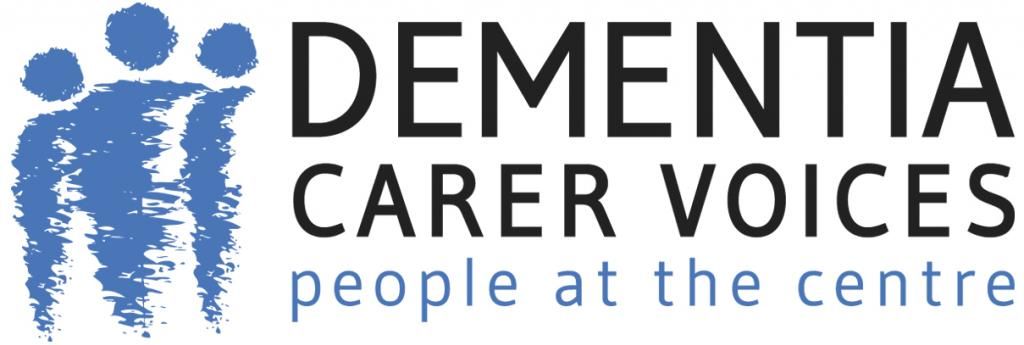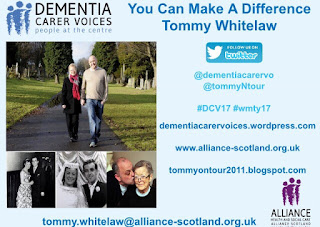With Great thanks to Jane Joy Senior Lecturer at Glasgow University School of Nursing for inviting Dementia Carer Voices to speak to the Nursing Students this week.
last Year we also worked in Partnership with Myself ,our Director Irene Oldfather,the ALLIANCE , Jane and the University on the letters we receive from people living with dementia ,families and carers .You can view the published report below
We are proud of this on going relationship with the University and look forward to meeting the next generation of Nurses on Monday
A joint article has been published between the ALLIANCE and the University of Glasgow, based on the letters Project Engagement Lead Tommy Whitelaw collected from carers across Scotland. These letters have been analysed by Jane Joy and Diane Willis from the University of Glasgow, with the results of their study now available:
1. Introduction
Professors Jane Joy, University Teacher, Nursing and Health Care and her colleague Diane Willis, University Lecturer, Nursing and Health Care, at the University of Glasgow performed an independent analysis of 417 letters from carers sharing their experiences. The letters were gathered after Tommy Whitelaw, now Dementia Carer Voices Project Lead, asked carers to share their stories with a view to improving policy and practice.
The report below summaries some of the key findings from the report.
2. Findings
· Many people reported becoming a carer through chance by visiting a friend or relative, often someone that they hardly knew, and performed took on a caring role as an interim measure believing that more support would be put in place
· A large proportion of the letters began with ‘my mother/father had just had a stroke, cancer, hip replacement, diabetes’, highlighting that people are living with multiple conditions/comorbidities.
· Carers have very little ‘downtime’ – many of the letters were written very late at night/very early in the morning
· The emotional energy of caring was a key theme that carers described in their letters. Carers described their sense of loss, many of whom are themselves in their 70s and 80s and have been married to their partner for several decades:
o ‘‘I am 80 years of age I am finding it tough and there is no one to share and help me get through. I feel so low at times and LONLEY. I NEED a human listening ear and also an understanding one.…we had a very happy marriage until my husband took dementia and I HAVE LOST A MARRIAGE AND LOST MY HUSBAND’ [carer emphasis].
o ‘I had our retirement all planned, the holidays etc., the future I saw for us is no longer there after all my hard work. My world collapsed around me’
· Many carers are isolated and expressed their feelings of loneliness, citing a lack of understanding and having no one to talk to:
o ‘I feel lonely and isolated. Sometimes I could cry with loneliness’
o ‘I can’t go out after mum comes back from the daycentre. I am in every night... but lately I have had a feeling of being imprisoned and without freedom.. caged. The phone rarely rings and friends have moved on’
· This isolation was often due to lack of respite or time to socialise, with many echoing that caring is a full time responsibility:
o ‘’I have been spending 168 hrs a week in my caring role like so many other carers.’
This has led to an impact in carers health and wellbeing, with a large proportion of carers fearing for the future should they become ill:
o ‘She developed dementia and was unsettled all day and night. My father had little or no sleep and was unwell himself so I spent every day in their house giving him a break. My health soon failed because of all this and I found myself on anti-depressants’
o ‘Our relationship has changed I do more for him.. I worry for the future what if I get ill?’
· Frustration was another theme that emerged from the letters. Carers expressed frustration at their concerns not being taken seriously, at the difficulty in obtaining a diagnosis and at the lack of support. This was also identified by a number of carers in the Dementia Carer Voices survey which captured the views of a further 160 carers.
o ‘The doctor didn't even take time to review [him] and told me he was depressed because he was able to answer all of the questions…… When he died his GP rang to ask if I was ok – I asked if he had dementia [they replied] “yes of course he had vascular dementia” this was the first time I was given an official diagnosis’
o ‘..his behaviour deteriorated, but he was able to put on a front to other people so no one believed me. He was entirely convincing and I was [thought of as] stupid’
o ‘My purpose in writing is to ensure that ......health care professionals do not just tick the box but listen to families who know the person’
· Many carers felt abandoned by health and social care staff, and that their rights were not being respected:
o ‘Health service consultants, doctors, nurses do not understand the stress of the carers physical, mental and emotional feeling on top of which [we] have no medical training at all….the only daily help I had at the age of nearly 80 was a carer visiting in the morning.’
o ‘Patients rights means if he refuses he does not have to participate.... This means I am left to toilet him.. The safety assessment requires two.. But I am left to carry out tasks on my own .. Where are my rights?’
· Over and above and emotional and physical strain, a caring role can cause severe financial strain, particularly with carers who have had to give up work or reduce their hours at work, or who are retired.
o ‘When he went into a home and I had to live on my pension... I struggled for a year before I found out I could take half his occupational pension for my own use’
o ‘I got into serious financial debt because no one directed me to the attendance allowance, community charge discount or carers allowance’
· A further area of concern was the discrepancies in the care provided:
o ‘It was very difficult looking after my husband and myself as I am quite a small person and my husband was very heavy.... I had to have day care four days as my health began to suffer... my husband fell down stairs.. I received some care from my local authority.. one hour in the morning to shower and dress my husband’
o ‘Respite care was like a kennel for old people with nothing to do’
· These responses are contrasted by pockets of good practice:
o the staff there were wonderful and put me in touch with day care providers including Alzheimer Scotland. This took the pressure off me
o ‘A wonderful CPN and a local lady from crossroads came to sit with my mum to give dad a break the good morning and good night ladies (home helps) were also a great help.’
This identified that good care was care that encompassed not only the person with dementia but also the carer.
3. Conclusion
The concluding remarks of the report reinforced the same issues of being of key concern to carers; namely the frustration at the lack of forthcoming information, the discrepancies of care, the emotional, financial and physical demand on carers and the gap between policy and practice.
“It was clear that people with dementia and their carers were not able to engage with the system effectively at present. Very often carers often had nowhere to go and no one to turn to whilst essential equipment e.g. incontinent pads were difficult to obtain. The burden of care impacted on their health and well-being as did finances. Within this were pockets of good practice, which carers defined as services that listened, acknowledged their experience and met their needs and the person with dementia. At present despite the plethora of policy aimed at increased awareness and support for people with dementia, there is a gap between what support has filtered through and the general malaise these carers felt. Services and policy makers need ensure that there are opportunities for shared/joint activity including innovative shared care/respite, support and counselling services for Carers looking after people with Dementia and better integrated information about dementia, benefits and support.”
About Dementia Carer Voices
Dementia Carer Voices seeks to:
- Highlight the importance of family carers being enabled after diagnosis to build and sustain a network of support, preventing crisis situations and feel enabled to ask for additional help when it is needed;
- Capture the experiences of carers across Scotland with a view to informing future policy and service provision;
- Raise awareness of the issues around caring for someone with dementia including among health and social care students;
- Empower carers by providing information based on the Charter of Rights and Carer Strategy about caring for someone with dementia;
- Highlight the role of Carers as natural resources; Carers as people with needs; Carers as people with independent lives;
- Work with other Carer Organisations and key stakeholders within and beyond the ALLIANCE’s network to ensure that relevant strategies are well informed by the views of service users.
- Harness the work undertaken to date by the Tommy on Tour campaign, and support Tommy Whitelaw to undertake further outreach work to carer organisations across Scotland.
About the ALLIANCE
The ALLIANCE has three core aims; we seek to:
· Ensure people are at the centre, that their voices, expertise and rights drive policy and sit at the heart of design, delivery and improvement of support and services.
· Support transformational change, towards approaches that work with individual and community assets, helping people to stay well, supporting human rights, self management, co-production and independent living.
· Champion and support the third sector as a vital strategic and delivery partner and foster better cross-sector understanding and partnership.






















